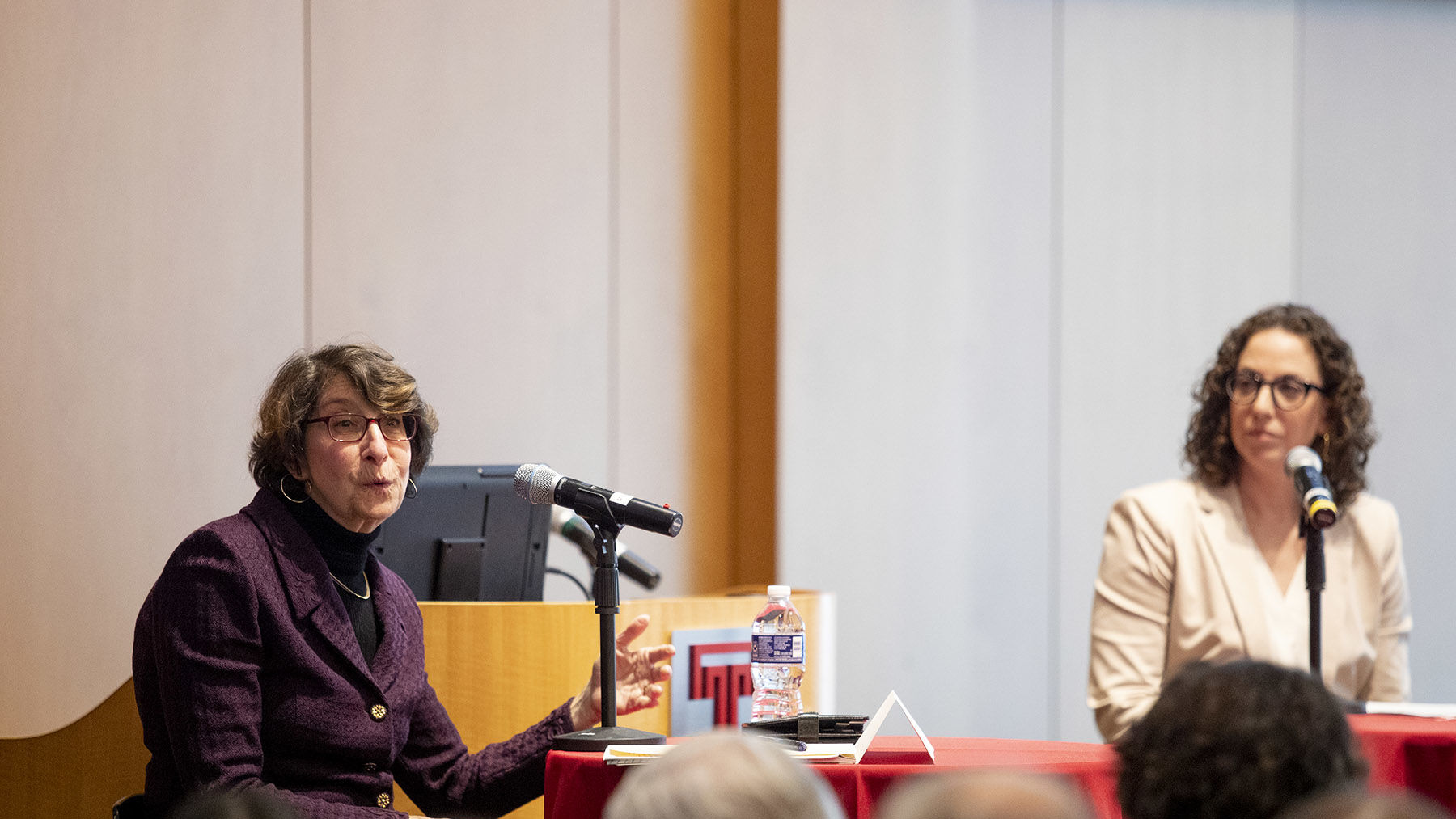Temple hosts a conversation on DEI with Jocelyn Samuels
EEOC Vice Chair Jocelyn Samuels speaks about attacks on diversity, equity and inclusion.

Jocelyn Samuels, vice chair of the Equal Employment Opportunity Commission (EEOC), addressed growing attacks on diversity, equity and inclusion work as she spoke during a fireside chat held at the Temple University Fox School of Business.
The EEOC is the federal agency responsible for enforcing federal laws that make it illegal to discriminate against a job applicant or an employee because of the person’s race, color, religion, sex, national origin, age, disability or genetic information.
In the wake of legislation in Florida, Texas and other states banning diversity, equity and inclusion (DEI) efforts, the Supreme Court’s ruling in the affirmative action cases, and predictions of the ruling’s impact on the workplace, the event addressed how organizations can continue to build diverse workforces and maintain the goals they have set for equitable and inclusive workplace cultures.
Larry “Chip” Hunter, dean of the Fox School of Business, situated the conversation held on Feb. 7 in the business context. The event comes as debates are occurring on social media about the value of diversity.
“In the business context, despite what you might read on the app formerly known as Twitter, research tells us that organizations and groups that are built around diverse perspectives can be more effective, more creative and simply smarter than less diverse groups,” Hunter said. “We’ve also long known by research that inequity is demotivating,” he added.
“If you think about the vast amount of attention that’s given by our leaders and scholars to organizational culture, that tells us a lot about the ways in which inclusion can affect organizations.
“It’s not surprising to me that when you look around our business community, you don’t see many contemporary business leaders throwing in with the so-called attacks on DEI,” he continued.
The fireside chat was moderated by Leora F. Eisenstadt, associate professor of legal studies and director of the Fox School of Business’ Center for Ethics, Diversity and Workplace Culture.
Eisenstadt and Samuels began the discussion by addressing how the movement to focus on diversity, equity and inclusion efforts in corporate America received a major expansion after the killing of George Floyd in 2020.
The pair noted that companies started taking concrete steps to try to level the playing field for people who have been disadvantaged based on race, sex, national origin or any other characteristics. Some of these measures included appointing chief diversity officers and launching employee resource groups where employees who share similar interests can come together and discuss ways to make the workplace better.
However, Eisenstadt said, there has been an uptick in recent attacks against these efforts.
“This backlash that we’ve seen over the last six to eight months has come in a lot of different forms. Some of them are lawsuits against companies for reverse race discrimination but also legislation at the state level prohibiting DEI at various state-run institutions or institutions of higher ed,” Eisenstadt said.
“There is a chilling effect happening at companies as a result of those. I guess the question is who or what is so threatened by DEI?”
In response, Samuels spoke on the factors triggering the backlash.
“I think that some of the backlash is triggered by those who truly believe that whatever the arena is, whether its education, or employment, or housing, credit and lending, then it’s a zero-sum game,” she said.
“And that one person’s gain is by definition another person’s loss and they feel threatened that they’re going to be the people who are losing.”
Samuels thinks it’s important for institutions to have clear messages about what they are doing and what they’re not doing because misconceptions about the nature of their diversity programs are fueling some of the backlash.
“I think that one of the things that employers, media and other institutions are overlooking is the importance of accurate messaging because I think there is mass confusion about what DEIA (diversity, equity, inclusion and accessibility) is,” Samuels said.
The event was co-sponsored by the Fox School of Business’ Center for Ethics, Diversity and Workplace Culture; the Beasley School of Law; the Center for Anti-Racism, the Fox School’s Departments of Management and Risk, Actuarial Science and Legal Studies; and Institutional Diversity, Equity, Advocacy and Leadership (IDEAL).